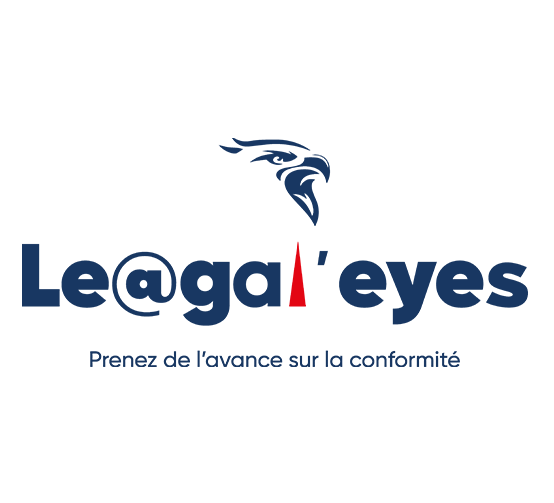The creation of an association must obey a certain number of rules. Certain associations, because of their specificity, require a more advanced formalism. Through this article, it is a question of reviewing the rules governing their creation as well as the sanctions of non-compliance with these rules.
The association can be defined as the contract by which two (2) or more people pool their activity, and if necessary, certain goods, for a non-profit purpose.
Associations can combine several social functions such as defending the interests of members or sharing leisure time, the charitable or humanitarian role, the expression, diffusion and promotion of ideas or works. Indeed, the purpose of the association is necessarily other than research and profit sharing.
This non-profit is the basis of the tax regime applicable to associations.
Basic rules applicable to associations
Under Senegalese law, the association contract is provided for by the provisions of the Code of Civil and Commercial Obligations (COCC) [1]. In addition to these provisions, there are those applicable to certain types of associations.
These are associations of political parties subject to law n ° 89-36 of 12 October 1989 modifying law n ° 81-17 of 6 May 1981 relating to political parties, associations for popular education and sports, cultural associations and associations participating in the public health effort framed respectively by laws n ° 88-08 of March 26, 1988 and n ° 92-07 of January 15, 1992. The association contract is formed freely without any formality other than that of the prior declaration and the registration of this declaration.
To do so, the articles of association must be filed with the competent authority (in duplicate). A receipt for this deposit will then be given to the declarants. Modifications occurring in the administration of the association and those which would be made to the statutes are subject to the same formalities.
The articles of association must contain certain information. They must indicate in particular the name and object of the association, the seat of its establishment, the conditions under which the general assembly and the board of directors (or any other body provided for in the statutes) will meet, names, addresses, nationalities and professions of the founding members. The purpose of the association must be precisely defined and relate only to a single activity or closely related activities.
Upon completion of the declaration and registration formalities, the association acquires legal personality and can receive contributions from its members and acquire, for consideration, all the property (movable or immovable) necessary for its operation.
Also, an association, regularly declared, can be recognized of public utility. This will allow him to benefit from public subsidies and be authorized to receive donations and bequests from any person.
Foreign associations
Foreign associations are subject to the formality of prior authorization. Indeed, unlike those in Senegal, no foreign association can form or exercise its activity without prior authorization.
The declarations provided for during the constitution or during the operation of the association must be accompanied, for foreign associations, by a list of their members and a request for authorization addressed to the Minister of the Interior
They are defined as being all associations and groupings presenting the characteristics of an association and:
- Who have their headquarters abroad or who;
- Having their seat in Senegal, have a board of directors composed mainly of foreigners or of which a quarter of the members are of foreign nationality.
Also, these foreign associations may have their authorization withdrawn in the event of non-compliance with association rules. And when they are not regularly authorized, they do not have legal personality and must cease their activity. (In the absence of statutory provisions), it is then provided for the liquidation of the assets of the grouping by judicial decision taken either at the request of any interested party, or at the behest of the public prosecutor.
Other categories of associations
Within the associations, there are specific categories:
- First, there are the professional associations in which the members share the same profession and whose purpose is to protect the rigorous exercise of the profession and to safeguard the socio-professional and economic interests of the members.
- Then there are associations for popular education and sports, cultural associations and associations participating in the public health effort. These may, even when they are not recognized as being of public utility, receive subsidies from the State or from other public authorities.
- Finally, there are the associations of political parties.
For the latter, in addition to the general rules, they must comply with other specific requirements. These include the following obligations:
1-Mention in their statutes "the commitment to respect the principles of national sovereignty and democracy";
2- Immediately declare any modification made to their statutes;
3- Declare each year, at the latest within eight (8) days following the anniversary date of the receipt of its statutes, the first names, names, professions and domiciles of those who in any capacity are responsible for its administration;
4- Deposit their financial account no later than January 31 of the past financial year by showing in this account that the party does not benefit from other resources than those coming from contributions, donations and bequests from its members and national sympathizers or from profits made on the occasion of events.
They must also show that the party does not benefit from any subsidy from abroad or from foreigners established in Senegal.
End of the association
The association can be dissolved by a unanimous decision of its members or according to the provisions provided for in the statutes or by decision of the court in which the head office is located. This dissolution can take place:
- For nullity of the contract;
- For disagreement between the partners;
- For serious or repeated disregard of the obligations provided for in article 814 [3] of the COCC, whether this disregard results from the statutes themselves or from the real activity of the association; In this case, the court can simply declare the nullity of the clauses, deliberations, acts or decisions contrary to the said obligations.
- In the event of a lawsuit by the association for a profit.
Finally, for associations for popular education and sports, cultural associations and associations participating in the public health effort, their dissolution occurs in the event of violations or if the organization does not present guarantees. sufficient techniques in relation to the goal assigned by the statutes. Also individuals who have participated in any capacity whatsoever in the management of dissolved organizations cannot participate, for a period of five (5) years from the dissolution, in any capacity whatsoever in the management of an association. popular education and sports or a cultural association, as the case may be.
With regard to associations of political parties, they are dissolved if they directly or indirectly receive subsidies from foreigners or foreigners established in Senegal.
REFERENCES :
- Law n ° 68-08 of 03/28/1968 relating to associations contained in the new code of civil and commercial obligations (COCC) of Senegal (Law n ° 76-60 of June 12, 1976).
- Law n ° 89-36 of October 12, 1989 amending Law n ° 81-17 of May 6, 1981 relating to political parties.
[1] Articles 811 to 826 of the New Code of Civil and Commercial Obligations of Senegal.
[2] Article 824 of the New Code of Civil and Commercial Obligations of Senegal.
[3] "The statutes must provide the name and object of the association, the seat of its establishment, the conditions under which the general assembly and the board of directors will meet, the names, address, nationality and profession. founding members. The object of the association must be precisely defined and relate to a single activity or closely related activities; in particular, associations other than legally constituted political parties or groups attached to them may not have a political purpose and must prohibit all political activity. Any discrimination based on race, sex or religion is prohibited for admission to the association, except with regard to associations of an exclusively religious nature, or political opinions, except with regard to political parties or groups attached to them ”.





